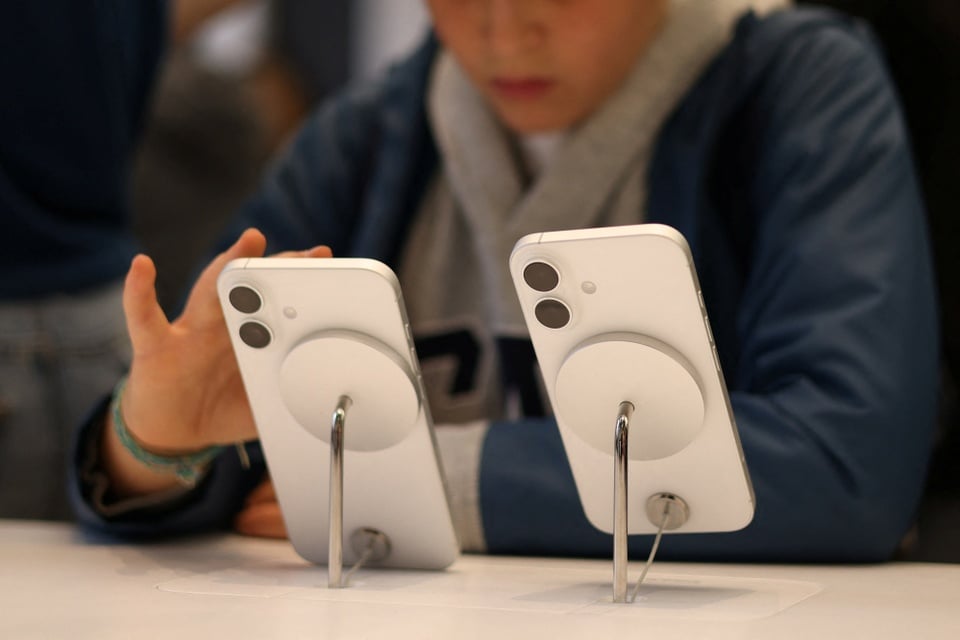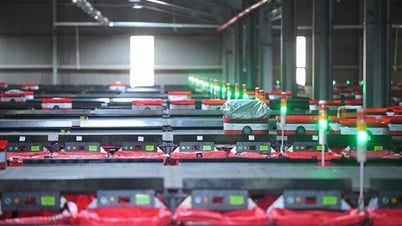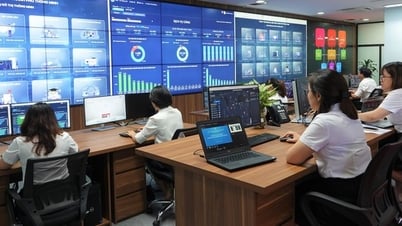 |
Apple's total revenue for the quarter reached $94 billion, up about 10% from the same period last year, even though this was the company's weakest quarter of the year. Photo: Reuters . |
On July 31 (US time), in a meeting announcing the third quarter financial results (ending in June), CEO Tim Cook officially confirmed that the company had sold its 3 billionth iPhone since the smartphone line was first launched in 2007.
According to The Verge , it took Apple nine years to reach the 1 billion iPhone sales mark in 2016. But since then, sales have skyrocketed. It took the company just five years to reach 2 billion and just four years after that to reach 3 billion. The steady increase in sales is proof that the iPhone has maintained its appeal for nearly two decades, despite major changes in the mobile market and increasing pressure from Android.
Also in its earnings call, Apple reported iPhone revenue of $44.6 billion for the quarter, up 13% from the same period last year. That accounted for nearly half of the company’s total quarterly revenue of $94 billion . The company’s shares rose about 3% in after-hours trading following the report.
However, some analysts say the iPhone sales boost this quarter may be temporary. Bloomberg 's Mark Gurman suggests the surge may be due to consumer concerns about President Donald Trump's tariffs, which could cause iPhone prices to skyrocket.
The company also acknowledged in its earnings call that U.S. consumers rushing to buy iPhones to avoid tariffs contributed about a sixth of its sales growth. CFO Kevan Parekh said the company saw “clear signs of early buying” early in the quarter. The rest of the growth came from “very strong iPhone upgrade performance,” Parekh said.
While Apple incurred a $800 million tax expense in the third quarter, $100 million less than initially expected, it forecast that the figure would rise to $1.1 billion in the fourth quarter. CEO Tim Cook said Apple had tried to mitigate the impact by shifting more iPhone shipments to the U.S. from China to India. The company’s gross profit margin was 46.5%, higher than analysts’ expectations of 45.9%.
However, the tax exemption for smartphones in the retaliatory tariffs may soon expire, according to Business Insider . At that time, iPhones manufactured in India will also be subject to high taxes, especially after Mr. Trump announced a new tax on the country a few days ago.
Another bright spot was revenue in China, which rose 4% after several quarters of declines. The country is a competitive market and has been a bottleneck for growth in recent years. Apple’s services segment, which includes the App Store and other services, hit a record $27.42 billion , up 13%.
But Apple is still lagging behind Big Tech rivals like Microsoft, Google, and Meta in the AI race. While Apple’s cap-ex spending is well-controlled, some investors say it reflects the company’s slowness in developing a clear AI strategy. Meanwhile, Microsoft and Meta are favored by investors because they can point to AI applications that are directly improving their bottom lines.
CFO Kevan Parekh said the company’s capital spending will increase in the coming period, although “not exponentially.” CEO Tim Cook added: “We are significantly increasing our investment in AI and are very open to M&A that can accelerate our growth path.”
Another looming concern is the upcoming ruling in a monopoly lawsuit against Google, which centers on the contract between Apple and Google to make Google the default search engine in the Safari browser.
The contract accounts for only about 6% of Apple’s total revenue but nearly a fifth of its operating profit, since it has virtually no operating costs. If the ruling affects the contract, Apple could lose a huge source of profit.
Source: https://znews.vn/da-co-3-ty-chiec-iphone-duoc-ban-ra-post1573257.html







































































































Comment (0)